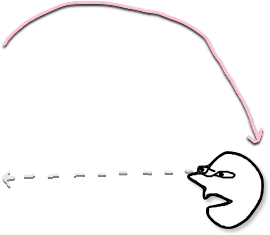I will share my own experience soon.
ive always been a communist

try having a commie grandma sometime, esp when youre trans
Yes I would like to try
To keep my answer overly simplistic: being intersectional.
turns out that having compassion goes a long way
Being Black and being confronted by the open fascism from the right made me look for anything and anyone who would oppose them. In a way, my leftism is a counter-reaction to the rise of the alt-right and right-wing movements across the West.
It’s kind of funny when you think about it. Fewer people would turn towards leftism if white people could just be chill.
What do you think of the uptick in younger black people “stanning” Trump because they promote him in spaces like hip-hop podcasts?
A bunch of disjointed thoughts.
Okay, as a disclaimer, I’m not from the US, but I do have many relatives in the USA, which is why I keep a close eye on the situation there. I think the situation for Black people in the USA and in Europe (where I live) is somewhat different. I think this whole topic would be deserving of its own thread, but I’m not sure we have that many Black posters on Hexbear.
US culture is hyper-individualistic, and toxic masculinity is sadly still pretty common in Black spaces. Both of these things are upheld by the US right-wing more so than by the liberals. (There is also a ton of manosphere overlap with right-wing culture, which is another avenue for Black people to embrace conservative brainworms.) Plus, I think a Black person can have quite a bit of success in the conservative sphere if they abandon their principles and stab their own people in the back.
I don’t blame Black people for wanting to make a good living under capitalism, but I don’t take lightly those who throw all other Black people under the bus just so they can get money for being one of the ‘good ones’ for the Republican Party.
EDIT: Plus, I imagine there is quite a bit of difference between US-born African Americans and fresh Black immigrants regarding their feelings toward the Republican Party. You can’t look at Black people as a monolith. Keep also in mind that some Black people are still big supporters of the Democratic Party, last time I checked
not to mention black (usually evangelical) christians that go down a rabbit hole of televangelists, podcasters and right-wing pundits that all lead to far-right figures. pretty messed up imo
Normalizing Marxist theory as an approachable thing to read is important for onboarding a certain kind of person.
Many people never even read the Manifesto because they think it’s akin to reading Mein Kampf. It doesn’t help that many associate the word “manifesto” with unhinged ravings a la Ted Kaczynski.
Literally just reading Marx with an open mind is what it took for me. I’m sure I could psychoanalyze some more from my past, but ultimately, Marxist theory stands on its own and is proven to connect with many types of people around the world.
In order for something to be normal, it has to be casual. So my suggestion is don’t be afraid to talk about communist ideas, but also don’t be weird or aggressive about it.
Its so corny to hear people talk about it like a redditor or like you were a guy from mid 1800s in real life
I totally agree but please use plain language
I literally have no idea what in his comment would prompt you to post thisI assume they are elaborating the last sentence I wrote, not commenting on the way I personally stated things
Ahhh, that makes sense. I was like
 reading your comment and trying to figure out what was objectionable about it
reading your comment and trying to figure out what was objectionable about itYe i try to post well meaning things nothing malicious my bad if i got you
Wage Labor and Capital is probably a better recommendation because it seems less unhinged to a lib.
💯
Sometimes I feel like telling people to read Marx is setting them up for failure. Idk maybe I’m just not smart but I find the way Marx writes to just be… so obtuse. I read Engels and the difference was like night and day, so much easier to understand.
Are there people who have rewritten e.g. Capital to be not awful? Because if I struggle with other works of Marx, I don’t think there’s any hope of me reading Capital.
I fully concede that reading won’t work for everyone. Only some types of people, I suspect especially (but not exclusively) college educated types, which describes many liberals.
Anyone is susceptible who genuinely works at developing their political thought. Even if right now they are obsessed with Libertarianism or some other vulgar economics, someone who is already book-smart will be more likely to grasp Capital.
People not matching the above description might be better swayed with direct organizing. I think that the vast majority of Marxists across the globe, historically, have understood the basic conclusions of Marxism intuitively from their own experience and not from reading a book.
Anyway, perhaps your issue with the style of Capital is due to the translation you read?
Any book translated from the original language has to trade off between precision and flow. I personally like the style of the original Aveling and Moore translation that is free on marxists.org, but I think many people prefer the more modern English of the Penguin edition (Fowkes). I haven’t spent enough time to know if one is objectively “better.”
The first three parts of Capital are hard, after that it’s just hundreds of pages of examples packed with dialectical materialist theory and is generally a lot easier to read. I’m thinking now that I’ll finish Capital and then start reading it from the beginning again. I also use VoiceDreamReader to read it to me.
Some things that moved me from squishy western “leftism” into actual leftism:
- The financial crash of 2008. All the adults in the room were showing their entire ass and the only people giving an explanation of what was happening that actually made sense were self-declared Marxists like Richard Wolff
- Local political developments made me realise the futility of the soft squishy boyscouts passing for acceptable leftism around here. For the past 30 years we have had increasing racism, greater divide between rich and poor and an expansion of the police state. The “left” around here has shown itself to be completely unable to do anything to stop or delay these developments. At festive occasions they stand up and say “how dare you!” and then they go on to be nice and friendly to the ghouls responsible.
- Experiencing actually existing social democracy in action. If you believe the fairy tales they tell you in social studies class, getting a succdem-controlled government should be an improvement over a liberal/conservative one. They might not exactly create a worker’s utopia but at least they might make some improvements here and there and be a little less evil. After all they depend on the “left” for parliamentary support, right? Nope. The Iron Law of Late Capitalist Electoralism is true, every administration, regardless of party affiliation or electoral primises, is going to be worse than the preceding one. The succdems are just as nasty as anyone else and the left will do nothing to rein them in.
- Becoming aware of climate change, the monumental scale of the task ahead and seeing how ridiculously small and insufficient policies are being touted as the solution by the establishment.
- Learning about history, especially the history of the USSR, WWII and western imperialism. There are so many omissions, distortions and outright lies in what you pick up from the western education system and popular culture that you begin questioning all of what you’ve learned once you start learning from more nuanced sources.
Some sources that opened my eyes along the way.
- My mom. I know it is cheesy and not applicable on a large scale but she deserves a lot of credit for laying the groundwork for my political development. She used to be a member of the communist party in her youth and although I never felt her trying to force any beliefs on me, but she presented me for an openness to communism and anti-capitalist ideas and introduced me to communist culture like the collages of John Heartfield and the novels of Hans Scherfig.
- My dad. Again a cheesy choice. Today the man is a deranged tradcath nerd-chud but credit where credit is due, although insane he is an intelligent and educated guy and his intellectual snobbery meant that I learned about stuff like formal logic and critical thinking from an early age which later on made it easier for me to break out of the liberal mind-prison.
- Chomsky. The guy is problematic but his propaganda theory and his work on US imperialism did a lot to move me left back in the day.
- Richard Wolff. He might be a bit too preoccupied with forming cooperatives under capitalism but he did a lot to explain how the capitalist economy works.
- Parenti. The guy is a legend. You might not be receptive to him if you are still full of anticommunist brainworms but once cracks have formed in that mindset he can expand those cracks quickly.
- Graeber. His intellectual originality really helped to question a lot of the preconceived notions about debt and money that supports capitalism.
- On a more local level I want to point out two people who helped me understand Danish history: The first one is Carl Heinrich Petersen who was an anarchist historian who wrote about the labour movement to the left of the succdems. I credit him with puncturing some of the common rose-tinted myths about inter-war succdem leader Thorvald Stauning. Then there is the before-mentioned author Hans Scherfig whose novels Idealister set in the inter-war period and Frydenholm set during Nazi occupation gives a good understanding of the mindset of nazi collaboration, the fecklessness of non-materialism and liberalism and the memory-holing of communist resistance ans well as bourgeois collaboration after the war. Another Danish author of note is Carl Madsen, a communist lawyer who wrote about the class nature of the legal system, official collaboration with Nazi Germany before and during WWII and pre-war refugee policy. He also wrote some pieces explaining the Democratic German and Soviet legal system from a positive standpoint.
Thoughtful intelligent parents feels like cheating my parents are pretty fucking dumb
deleted by creator
deleted by creator
How come you hate capitalism but most ex-soviet bloc ppl ive met and seen online hate communism instead
deleted by creator
I came out of the womb crying what sounded like the melody of the internationale, i learned to read at three by trying to digest all of the volumes of capital. I was bullied in school because I told my classmates that were all going to be wage slaves. I am better than all of them and its true because i am so much smarter and built different than them for knowing the truth.
read The Jungle for a book report 20 years ago
that planted the first seeds with the whole funny trivia about
 “this is a story about the misery capitalism visits upon the working class”
“this is a story about the misery capitalism visits upon the working class”  “ew yucky sausage”
“ew yucky sausage”was just kind of a dipshit “lib by default” until a bunch of things coincided to push me left: chuds pointing out that trump was just doing shit obama already did (“oh ok well that doesn’t make me like trump it just makes me hate obama too”), dems making me sick of them by sucking off mccain’s fresh corpse right as I’m in the middle of re-evaluating everything I thought I knew about both parties, and cth existing at the right time and place to catch my frustration with civility theater
then several years of the sub and now you folks deworming my brain
The prob when they teach that book is that they dont contextualize it, the widespread of it and really drive home the point that if they could theyd absolutely make three year olds work in the slaughterhouse
oh for sure, we made the fda and that solved everything forever, please ignore the increasing stream of news stories about illegal slaughterhouse child labor and states openly re-legalizing it in response
Was browising r/redditalternative and found out about some tankie instance called lemmygrad.ml then my whole worldview came crashing down
Honestly for me it was a lot of small things over time but what pushed me to actually learn about socialism was the memes on lemmy.
ShitRedditSays
Also a side of Philosophy Tube’s Mad Marx series.
ShitRedditSays
Oh shit me too
When I started using their IRC I was a dumbass libertarian dude
Now I’m a ML and a woman lol
i was never on SRS, they had an IRC? fuckin hardcore

ShitRedditSays
Was critical for me too in the deworming process
Removed by mod
I was an edgy 13-year old who discovered the meaning of “left wing” and “right wing”, repeated Ben Shapiro talking points for six months, then became a lib when I developed empathy. Started going to climate change student protests and I felt amazing, powerful, like I was changing the world. Nothing came of it and I questioned why people would burn our world for profit, which lead to me reading Marx when I was 16.
deleted by creator
Grew up in a very liberal area/family, had an instinctive revulsion against inequality and the wealthy from a young age. In high school I read Zinn, Chomsky, and a bunch of Crimethinc type stuff, lived through the reactionary hysteria of 9/11, and became an “anarchist.” Anarchist in quotes, because it was a very surface level, lifestylist understanding of anarchism (no shade to any comrades reading).
Without any real theoretical grounding, during college and after I drifted into a sort of standard issue succdem position, feeling like there was no viable alternative to capitalism, but also no path but slow reform. The brief excitement of getting Bush out and Obama in quickly turned to disillusionment when he failed to hold the previous administration accountable for any of its crimes and continued all its worst foreign policy. By the time 2008 rolled around, I was not surprised by the failures of the state.
After Trump was elected. I managed to avoid the worst of the liberal panic, but I also felt that any system that would elect Trump was not one that was salvageable. I knew something had to give. I had been identifying as a socialist for a few years at that point, but hadn’t been politically active and nor yet politically conscious. I joined DSA and started trying to learn what socialism was really all about, which led me to the chapotraphouse subreddit and eventually here.
Looking over this whole story, the thing that strikes me the most is that Marxist theory had been so completely excluded from the range of acceptable thought that it didn’t even occur to me to seek it out until quite late in my political journey. Even as an adult, cracking open a book by Lenin felt a bit dangerous and forbidden in a way that anarchism never did. I know “read theory” is a bit of meme on here and people whine and complain about it, but honestly I do think it’s the most important thing. Your life experience can help radicalize you (the shitty jobs I worked certainly did), getting out in the world and doing praxis is great and necessary, and so on. But without a framework to understand these things within and relate to a larger struggle, you are far more likely to fall into error or disillusionment or to lack solidarity with others.




















